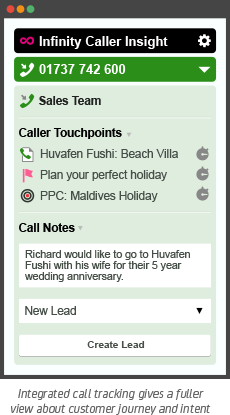Managing your CRM efficiently and appropriately is essential to maintaining positive customer relationships, correctly allocating account or client management resources and accurately attributing sales.
But it’s all too easy for CRM data to become unwieldy, inaccurate and out-of-date, and current marketing and CRM trends mean this could pose serious problems for businesses.
The CRM market is predicted to grow at over 14.8% annually until 2017, with particularly strong growth in marketing. Businesses are using CRM data to inform programmatic marketing campaigns, an area where 64% of European marketers are planning to increase spend.
Data quality issues that aren’t addressed now will only grow. This could lead to customer dissatisfaction, poorly targeted online ad campaigns and breaches of data protection law.
At the moment, businesses are legally required to keep personal data accurate and up to date, with fines for companies breaching regulations. New EU directives will increase these penalties to up to 5% of worldwide turnover.
Automated CRM systems which integrate with call tracking, such as those offered by Salesforce, trace and pull in information about customer journeys, history and details. This can bypass many of the issues associated with poor data collection and quality, providing substantial benefits to both businesses and customers.
Improved multi-channel customer experience

According to a Salesforce survey, 86% of marketers think that creating a joined up customer journey is very important, yet only 29% of enterprise level companies are doing this effectively. This is particularly important for sectors where conversions tend to happen over the phone, for instance in the luxury holidays or education sectors.
A customer might have spent considerable time moving through the website researching and refining their decision before calling. Automatically feeding in this history to your CRM so that a sales representative has this information means that their conversation is a seamless extension of pre-call activity. This avoids problems with duplicate records too, a particular issue with manual entry. One customer could end up with multiple records, owing to human error or lack of standardisation across fields. This can easily result in poor customer service, as people are offered inappropriate products or out-of-date contact information is used.
For example, using an automated CRM when a customer calls about a Caribbean holiday, their sales representative can quickly view information to ensure they discuss the most appropriate package that reflects their user journey and history.
This might be highlighting special romantic options if they can tell that this coincides with an anniversary or discussing relevant destinations and hotels based on browsing history.
Post-call, this information can focus marketing efforts, so that someone interested in high-end golfing holidays in the Maldives isn’t sent information or deals for mid-price Mediterranean breaks.
Improving marketing ROI
Inaccurate or fragmented CRM data makes it difficult for marketers to assess attribution and ROI, leading to inappropriately targeted marketing campaigns.
A CRM system which relies on a call centre operative to ask and record which channel the customer came through is open to a wide range of errors. Automated CRM systems which tie-in to analytics and call tracking systems offers marketers more visibility on their customer’s journey.

Integrating the full customer journey across different marketing channels allows for a full and accurate attribution for sales that moves away from the last-click model to give a more holistic view. In the above example, relying on manual or even last-click attribution could easily give a misleading impression of the initial PPC keyword’s importance.
But accurate up-funnel attribution, linked with the customer’s end value, means that PPC campaigns can be effectively managed to optimise bidding on the keywords that drive high-value conversions across the entire user journey.